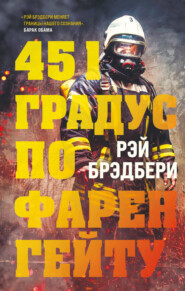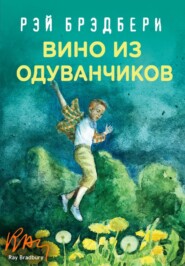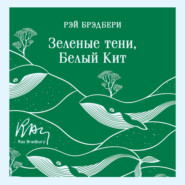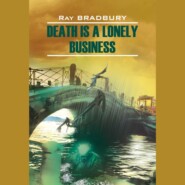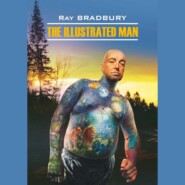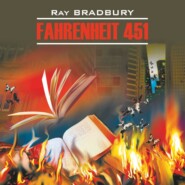По всем вопросам обращайтесь на: info@litportal.ru
(©) 2003-2025.
✖
Long After Midnight
Автор
Год написания книги
2018
Настройки чтения
Размер шрифта
Высота строк
Поля
And nothing happened.
Neva began at last to hum under her breath.
The road was empty.
And then it was not empty.
Neva laughed. Douglas squinted and laughed with her.
For there was a small boy, nine years old maybe, dressed in a vanilla-white summer suit, with white shoes and a white tie and his face pink and scrubbed, waiting by the side of the road. He waved.
Neva braked the car.
“Going in to town?” called the boy, cheerily. “Got lost. Folks at a picnic, left without me. Sure glad you came along. It’s spooky out here.”
“Climb in!”
The boy climbed and they were off, the boy in the back seat, and Doug and Neva up front glancing at him, laughing, and then getting quiet.
The small boy kept silent for a long while behind them, sitting straight upright and clean and bright and fresh and new in his white suit.
And they drove along the empty road under a sky that was dark now with a few stars and the wind getting cool.
And at last the boy spoke and said something that Doug didn’t hear but he saw Neva stiffen and her face grow as pale as the ice cream from which the small boy’s suit was cut.
“What?” asked Doug, glancing back.
The small boy stared directly at him, not blinking, and his mouth moved all to itself as if it were separate from his face.
The car’s engine missed fire and died.
They were slowing to a dead stop.
Doug saw Neva kicking and fiddling at the gas and the starter. But most of all he heard the small boy say, in the new and permanent silence:
“Have either of you ever wondered—”
The boy took a breath and finished:
“—if there is such a thing as genetic evil in the world?”
A Piece of Wood (#ulink_7325bec1-28e3-5479-9c55-e637dd471fe5)
“Sit down, young man,” said the Official.
“Thanks.” The young man sat.
“I’ve been hearing rumors about you,” the Official said pleasantly. “Oh, nothing much. Your nervousness. Your not getting on so well. Several months now I’ve heard about you, and I thought I’d call you in. Thought maybe you’d like your job changed. Like to go overseas, work in some other War Area? Desk job killing you off, like to get right in on the old fight?”
“I don’t think so,” said the young sergeant.
“What do you want?”
The sergeant shrugged and looked at his hands. “To live in peace. To learn that during the night, somehow, the guns of the world had rusted, the bacteria had turned sterile in their bomb casings, the tanks had sunk like prehistoric monsters into roads suddenly made tar pits. That’s what I’d like.”
“That’s what we’d all like, of course,” said the Official. “Now stop all that idealistic chatter and tell me where you’d like to be sent. You have your choice—the Western or the Northern War Zone.” The Official tapped a pink map on his desk.
But the sergeant was talking at his hands, turning them over, looking at the fingers: “What would you officers do, what would we men do, what would the world do if we all woke tomorrow with the guns in flaking ruin?”
The Official saw that he would have to deal carefully with the sergeant. He smiled quietly. “That’s an interesting question. I like to talk about such theories, and my answer is that there’d be mass panic. Each nation would think itself the only unarmed nation in the world, and would blame its enemies for the disaster. There’d be waves of suicide, stocks collapsing, a million tragedies.”
“But after that,” the sergeant said. “After they realized it was true, that every nation was disarmed and there was nothing more to fear, if we were all clean to start over fresh and new, what then?”
“They’d rearm as swiftly as possible.”
“What if they could be stopped?”
“Then they’d beat each other with their fists. If it got down to that. Huge armies of men with boxing gloves of steel spikes would gather at the national borders. And if you took the gloves away they’d use their fingernails and feet. And if you cut their legs off they’d spit on each other. And if you cut off their tongues and stopped their mouths with corks they’d fill the atmosphere so full of hate that mosquitoes would drop to the ground and birds would fall dead from telephone wires.”
“Then you don’t think it would do any good?” the sergeant said.
“Certainly not. It’d be like ripping the carapace off a turtle. Civilization would gasp and die from the shock.”
The young man shook his head. “Or are you lying to yourself and me because you’ve a nice comfortable job?”
“Let’s call it ninety percent cynicism, ten percent rationalizing the situation. Go put your Rust away and forget about it.”
The sergeant jerked his head up. “How’d you know I had it?” he said.
“Had what?”
“The Rust, of course.”
“What’re you talking about?”
“I can do it, you know. I could start the Rust tonight if I wanted to.”
The Official laughed. “You can’t be serious.”
“I am. I’ve been meaning to come talk to you. I’m glad you called me in. I’ve worked on this invention for a long time. It’s been a dream of mine. It has to do with the structure of certain atoms. If you study them you find that the arrangement of atoms in steel armor is such-and-such an arrangement. I was looking for an imbalance factor. I majored in physics and metallurgy, you know. It came to me, there’s a Rust factor in the air all the time. Water vapor. I had to find a way to give steel a ‘nervous breakdown.’ Then the water vapor everywhere in the world would take over. Not on all metal, of course. Our civilization is built on steel, I wouldn’t want to destroy most buildings. I’d just eliminate guns and shells, tanks, planes, battleships. I can set the machine to work on copper and brass and aluminum, too, if necessary. I’d just walk by all of those weapons and just being near them I’d make them fall away.”
The Official was bending over his desk, staring at the sergeant. “May I ask you a question?”
“Yes.”
“Have you ever thought you were Christ?”
“I can’t say that I have. But I have considered that God was good to me to let me find what I was looking for, if that’s what you mean.”






